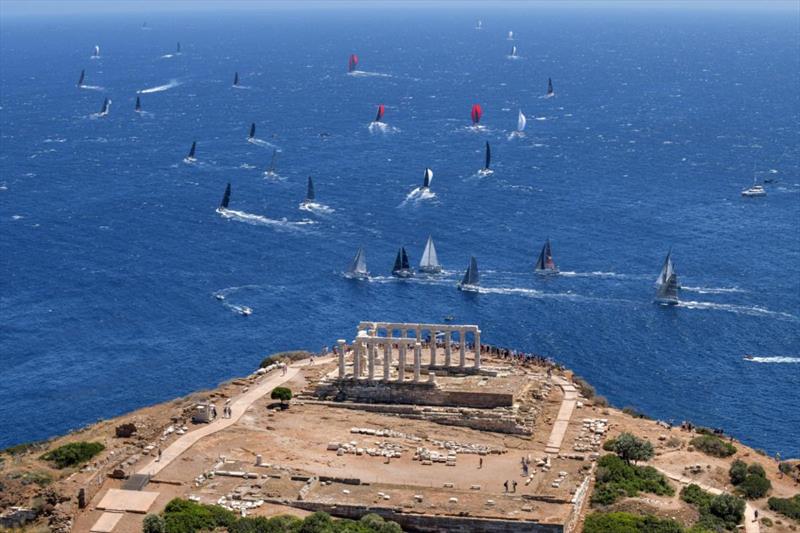Maritime industry steers through tariffs, geopolitical tensions | Business | valorinternational
Global shipping executives are sounding the alarm over growing geopolitical instability and U.S. trade tariffs under President Donald Trump, warning of mounting challenges to the world’s maritime supply chain. The concerns dominated discussions at Nor-Shipping, one of Europe’s leading maritime trade shows, which concludes this Friday (6) in Oslo and Lillestrøm, Norway.
Industry leaders representing companies headquartered across the Americas, Europe, and Asia said protectionist measures from the White House are injecting uncertainty into long-term planning and disrupting global trade partnerships. With roughly 80% of international trade transported by sea, they warned that restrictive U.S. trade policies risk reducing trade volumes and putting pressure on freight rates.
In Norway—historically a key offshore partner for Brazil’s energy sector—shipping companies are re-evaluating their forecasts in light of the rising uncertainty fueled by recent U.S. tariff announcements.
/i.s3.glbimg.com/v1/AUTH_37554604729d4b2f9f3eb9ad8a691345/internal_photos/bs/2025/G/b/Zv52EqRAy1427FDNGa1A/knut-hareide-divulgacao.jpg)
“We haven’t yet seen major effects from geopolitical tensions, but uncertainty has taken hold of our industry,” said Knut Arild Hareide, CEO of the Norwegian Shipowners’ Association (NSA), in an interview with Valor.
In April, the Trump administration softened proposed port fees for vessels built in China after strong pushback from the maritime sector. According to Mr. Hareide, about 45% of the ships operated by Norwegian companies are constructed in China. Even with the adjustment—rolling back a plan that initially called for tariffs of up to $1.5 million per port call—the environment remains challenging for shipowners.
“In January, we asked our members how many ships they planned to build in the next five years. The answer was 250. If I ask them now, that number will be lower because of uncertainty in the market,” said Mr. Hareide, who previously served as director general for maritime transport at the Norwegian Maritime Authority (NMA).
In Brazil, where about 95% of trade is conducted via sea routes, U.S. policy shifts are being closely watched, particularly by companies involved in deep-sea navigation. For Brazil’s offshore support segment—a significant slice of the domestic maritime market—the impact of U.S. tariffs is compounded by wars, which affects oil prices.
“Even if we don’t see short- or medium-term impacts on companies operating in Brazil, long-term effects are definitely on our radar,” said Dino Batista, Brazil’s national secretary for waterways and navigation, who represented the Ministry of Ports and Airports at Nor-Shipping. “These back-and-forth decisions make it very difficult for companies to plan. There’s a real concern that such policies will affect future routes and investment.”
Throughout the week, executives also voiced concern over how U.S. political decisions could slow the maritime industry’s decarbonization efforts. President Trump, who opposes multilateral agreements, has pledged to withdraw the U.S. from the Paris Agreement, just as he did during his first term from 2017 to 2021. His stance comes at a pivotal moment, as the shipping sector intensifies its push to meet emissions targets set by the International Maritime Organization (IMO).
In April, the IMO approved a framework to price carbon emissions from shipping. The new rules are expected to be formally adopted in October and come into force in 2027.
Jan Dieleman, president of U.S.-based Cargill Ocean Transportation, expressed deep concern over the fate of investments in the industry’s energy transition. “What’s different this time isn’t just the disruption, it’s the scale and the foundation of that disruption. The industry is facing challenges, and there’s a kind of paralysis in decision-making right now,” he said during Nor-Shipping’s opening session on Tuesday (3).
Harald Serck-Hanssen, vice president of Norway’s largest financial institution, DNB, echoed the concern, noting more bottlenecks in the transition than previously expected. DNB is one of the world’s leading lenders to the maritime industry, financing shipping companies, oil producers, and equipment manufacturers in the energy sector.
Still, Mr. Serck-Hanssen argued that the obstacles are likely temporary. “The internet and digitalization didn’t stop after the dot-com crash in 1999,” he said. He added that financing for renewable energy projects continues to grow globally and will likely remain strong due to economic viability. “In the past, these projects were driven by what you might call ‘greenwashing.’ Now, they’re driven by the fact that solar and wind power are cheaper than coal in most countries and U.S. states. So it makes business sense,” he said.
Former U.S. Secretary of State and climate envoy under President Joe Biden, John Kerry, closed Tuesday’s opening session of Nor-Shipping, just as he did in 2023, with a clear message: the economics of the energy transition remain unchanged.
“I want to stress as firmly as possible that while the U.S. presidency has changed, the economic rationale behind the energy transition has not,” he said.
Mr. Kerry urged the shipping industry to embrace the transition as an opportunity. “Maritime transportation has the chance to lead, to help the world seize the possibilities of this transition, and to serve as an example to others.”
The reporter’s travel was facilitated by an invitation from the Norwegian Consulate in Rio de Janeiro.











